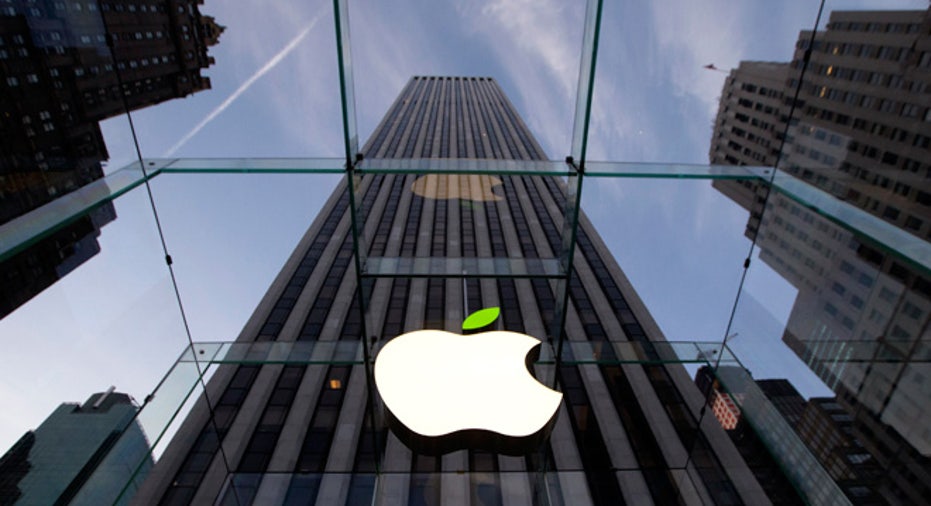Why Apple Proves You Don’t Need a Sale to Boost Sales

The next time someone tells you the consumer’s caput, tell them about how Apple (NASDAQ:AAPL) woke them up. Because say what you will of sluggish retail sales, when it comes to those fancy new Apple iPhones, usually reticent shoppers seem unusually open to parting with their cash. And we’re talking a lot of cash. Consider the fact that Apple sold 39.3 million iPhones in its latest quarter. Tell me the last time you heard a company – any company – sell nearly 40 million units of anything. Then again, these latest phones are hardly anything, and hardly cheap. Apple didn’t move them off shelves with any incentives or special sales – actually just the opposite. Most sold at a minimum of 300 bucks; pricier iPhone 6 Plus models about a 100 dollars more than that. And let’s not even discuss those pricey wireless plans. Yet many happily waited – sometimes in days-long lines outside Apple stores – to get their hands on these coveted devices. To say that all this is good news for Apple is an understatement. Thanks to those hot new phones, the company’s fourth-quarter earnings jumped 13 percent to a staggering $8.47 billion. Revenue surged 12 percent to $42 billion. Put another way, that’s more than many Fortune 500 companies make in a year and more than most companies make – ever. And all this slap-dab in the middle of one of the most sluggish recoveries we’ve seen in American history. So what does that say about this recovery? Some would argue that it proves the American economy’s underpinnings are sound. I don’t agree. It’s Apple’s underpinnings that are sound. It’s Apple’s retail outlook that’s encouraging, because it’s Apple’s products that are in demand, and for which shoppers are happily willing to pay a premium. What does all this mean? Well, to play off, “Field of Dreams,” if you build it, they will come. If you make a compelling enough product, they will buy. If you offer something so tempting, shoppers will so part with their cash. The trouble is not all companies can do that. Not all companies come close to that. Think “same-old” versus “must-have.” Apple’s products have become must-have products. Strangely in this economy, Apple has made parting with cash so…cache. That’s what’s different about Apple. It defies conventional wisdom as much as it does a so-so recovery. Most retailers and consumer product companies of any sort aren’t so lucky, or so blessed. They invariably blame everything from the sluggish economy to even the weather for their anemic sales. That’s not to say they don’t have a point – just that Apple stomps on that point, and pretty much at the point of sale. Somehow the house that Steve Jobs built has built an aura around products a lot of folks want, but more importantly, a lot of folks covet. It’s not so much that Apple has reinvented the wheel as much as redefined it, and simplified it, and added a splash of style to it. When you make consumers buy your stuff at full-price, you’re not only taking full advantage of good press, you’re making full use of good vibes. Apple has good vibes. It’s doubly ironic because little more than a year ago, critics feared Apple was losing those good vibes and that it was losing its shine as well. Rival Android-operated phones, principally made by Samsung, were all the rage, and getting all the rave reviews. Triply ironic today is the fact that such rival smartphones out-sell Apple’s products by more than two-to-one. The difference is Apple makes money on its iPhones – big money. Just like it makes money on its line of Mac computers – 5.52 million of them sold in the latest quarter. Ease-of-use is a big reason. “Cool” is another. Presumably providing “both” is the cash coup de grace. So the issue isn’t that the consumer won’t spend. It’s more that the consumer won’t spend on what she doesn’t want, or doesn’t think she really needs. Apple’s stuff seems to be different. It brings out the spender that I suppose is tucked in each and every one of us – but whose buying impulses never seemed stirred. Until and unless something stirs us. That’s when we part with our cash, and companies like Apple part…with the pack.



















